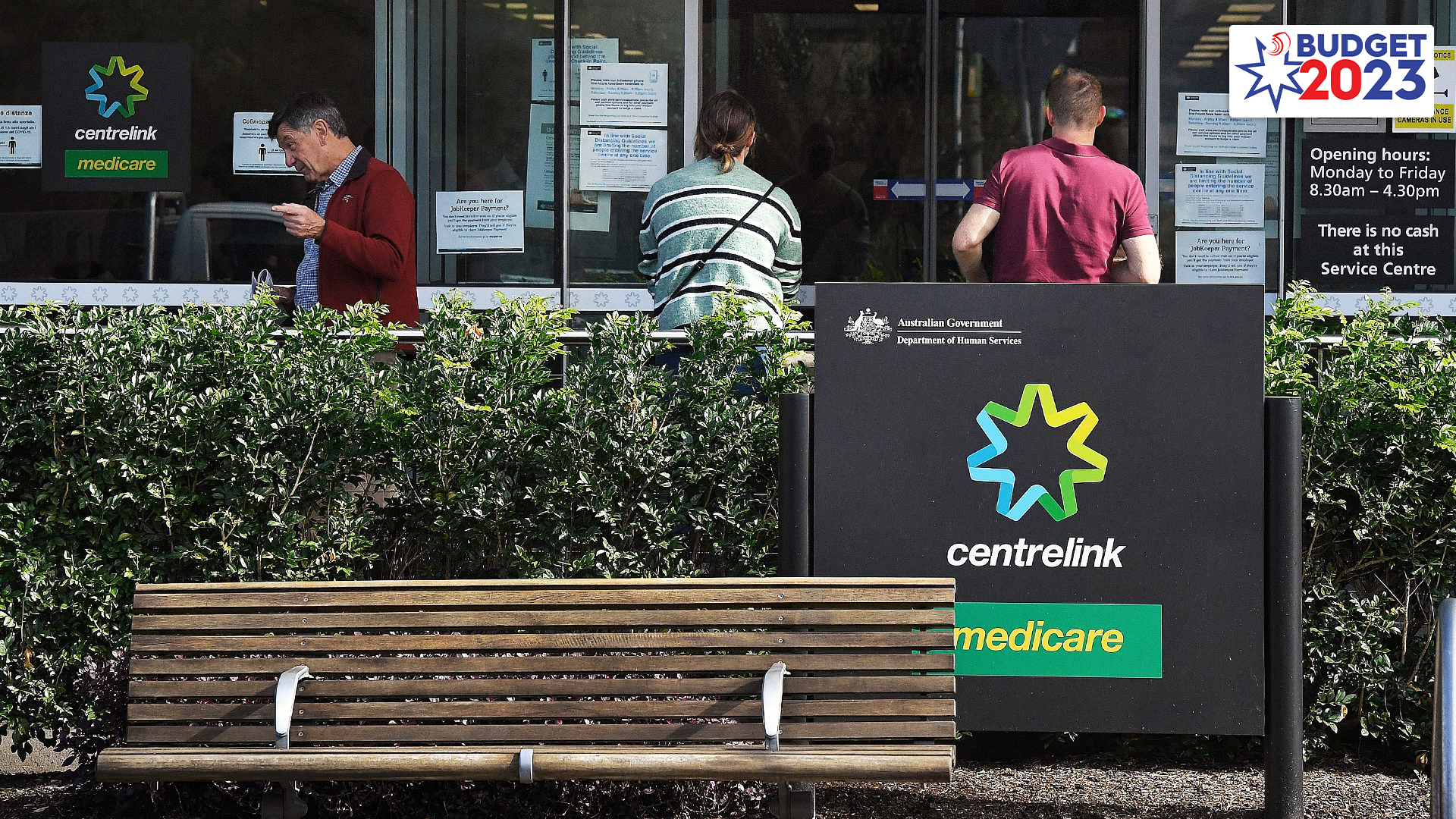Labor has been accused of betraying the people it promised to help with a cost of living package that will leave 1 million people in poverty.
Reactions to the $14.6 billion spend detailed in federal Treasurer Jim Chalmers' surprise surplus budget ranged from lukewarm praise through to outrage on the government's left and right.
The unemployment payment will rise $40 a fortnight from September — more for the over-55s — coupled with increases to rent assistance, support for more single parents and energy bill relief.
WINNERS AND LOSERS: Who gets the most?
But the JobSeeker increase is well below that recommended by the government's own welfare advisory panel and has been labelled inadequate by many in the social services industry.
The Australian Council of Social Service called it "critical" but insufficient, UNICEF described the increase as "modest" and Mission Australia said it would force more people into poverty and homelessness.
ACOSS CEO Dr Cassandra Goldie welcomed the increases to all three payments but said they would leave more than 1 million people in poverty.
"Whilst every dollar counts, the $20 a week increase to JobSeeker and related payments is well below the Economic Inclusion Advisory Committee's finding that it needs to rise by at least $128 a week to ensure people can cover the basics," the council said.
"The government is providing an increase of $2.85 a day for people with the least. The Stage 3 tax cuts will deliver $25 a day to people on the highest incomes.
"We have our priorities wrong."
Greens leader Adam Bandt called the increase "a betrayal of people who were promised that no one would be left behind".
"Right now, millions of people are living in poverty. Queues at food banks are growing, people are being forced to the brink of homelessness by skyrocketing rents, and many are forced to choose between paying the bills and putting food on the table," he said.
https://twitter.com/AdamBandt/status/1655868381638303745
"Labor knows this. Tonight, they have chosen a surplus over supporting people who counted on them.
"They're continuing with Stage 3 Tax Cuts, nuclear subs, and handouts for wealthy property investors and fossil fuel corporations."
Teal Senator David Pocock secured the EIAC report last year in exchange for his support of a Labor industrial relations bill that gives better protections and faster payment for subcontractors among other measures.
He described the boost as "laughable" and "embarrassing".
"Experts are saying that when you've got people living in poverty, it's an impediment, it's a barrier to them getting back into the workforce," he told Sky News.
"So I think we missed a massive opportunity to actually lift people out of poverty and allow them to get their lives back together."
Chalmers, forecasting what would be the first budget surplus in 15 years, stressed his government was deliberately banking most of a surprise revenue windfall to help shore up the budget.
TWO-MINUTE GUIDE: What's in it for me?
COST OF LIVING: The measures that will offer the most relief
On that front, the Australian Chamber of Commerce and Industry described the budget as "credible" but said more work would be needed to fix a structural deficit predicted to plunge the books back into the red next year and beyond.
"This budget harvests a slice of good fortune and makes some tangible steps in restoring the nation's balance sheet, but the fate of our economy hangs in the balance," ACCI chief executive Andrew McKellar said.
It was a sentiment echoed by the Committee for Economic Development of Australia, which also flagged stronger income support measures for vulnerable Australians would be "critical going forward".
Chalmers also made a big deal of his government's new healthcare measures, particularly a $5.7 billion investment in Medicare, which includes tripling the bulk billing incentive to hopefully allow more people to find a surgery near them offering a fully free consultation.
The Royal Australian College of General Practitioners hailed the package as a "game changer" that would help arrest the decline of bulk-billing.
RENEWABLE ENERGY 'SUPERPOWER': How the government is tackling climate change
"It will help to stem the bleeding, relieve pressure on our entire healthcare system including our hospitals, and ease pressures on people struggling to afford the care they need," RACGP President Dr Nicole Higgins said.
Shadow Treasurer Angus Taylor had called for Labor to prioritise tackling inflation and "rein in spending".
Opposition Leader Peter Dutton will give his budget reply speech on Thursday.
Sign up here to receive our daily newsletters and breaking news alerts, sent straight to your inbox.




